- Home
- W. W. Jacobs
John Henry Smith Page 14
John Henry Smith Read online
Page 14
ENTRY NO. XII
THE ST. ANDREWS SWING
A week has passed since I made the last entry in this diary, and anumber of peculiar things have happened.
My brokers have brought an additional 10,000 shares of N.O. & G., whichbrings my speculative holdings to a total of 25,000 shares. Theyacquired the last block at an average price of 65, and the market closedto-night at 63. If I were to settle at this figure I would be loser tothe amount of $150,000, not including the $23,000 lost on the first twothousand shares purchased, on which I have taken my losses. Countingcommissions and interest I am about $175,000 to the bad, but am not inthe least worried.
My brokers are now placing their orders through houses in other cities,and I am certain the extent of my operations is a secret beyond theslightest question.
The qualifying round for the "Harding Trophy" brought out the largestfield of players in the history of our club competitions. Of course mostof those who started declared that they had no expectation of winning,or even of qualifying in the first sixteen. For instance, there wasPeabody, whose best medal score is 112.
"Are you going to play for that bronze gent?" demanded Chilvers, asPeabody came to the first tee.
"Thought I might just as well enter," said Peabody. "Of course I know Ihaven't a chance in the world to win."
"You never can tell," said Chilvers, his face solemn as an owl. Chilversis a merciless "kidder."
"That's right," admitted Peabody.
"If you play the way I saw you doing the other day, there's not a man inthe club has anything on you," asserted Chilvers, winking at me.
"Stranger things have happened," declared Peabody, his face illuminatedby a hopeful grin. "I made the last hole yesterday in five, and that isas good as Carter or Smith have done it in this year."
Now, as a matter of fact, there was not one chance in five hundred thatPeabody would qualify, and he didn't, but that did not prevent hisstarting out with a hope and a sort of a faith that by some bewilderingcombination of circumstances he would qualify, and later on bowl overall of his competitors and carry off the prize with the sweeter honoursof victory.
If there be any soil where hope absolutely runs riot it is in the breastof a golfer. The fond mother who cozens herself into the faith that herboy will some day be President of the United States builds on the samefoundation as the duffer who enters a competition in which he isoutclassed.
Personally I can see no reason why I shall not some day win theinternational golf championship, and I have strong expectations of doingso, but know perfectly well that I will not. It is a peculiar butdelightful complication of mind.
Carter had the best qualifying score, making the round in a consistenteighty. Marshall was second with an eighty-two, Boyd and LaHume weretied with eighty-four each, and I came in fifth with one more.Chilvers, Pepper, and Thomas also qualified, but the cup should lieamong the first five.
Candour compels me to admit that on form it should come to a strugglebetween Carter and Marshall; but if I get into the finals with either ofthese gentlemen I shall play with confidence of winning.
A most astounding thing has happened! If I were incorporating theseevents in a narrative or a novel I presume I would reserve the statementI am about to make until the finish, so as to form an effectiveclimax--and on reflection I have decided to do so in these notes. So Iwill begin at the beginning.
The second day after our visit to Bishop's, Miss Lawrence called measide on the veranda, and I could see that some great secret hadpossession of her.
"I wish to ask a favour of you, Mr. Smith," she said, after beatingabout the brush for a minute.
"Anything at my command is yours," I said.
"I have come to you," she said, "because I know that you are one of themembers of the club who can keep a secret. Not that this is anytremendous affair," she added, a blush faintly touching her cheek, "butI don't care to have everybody know it."
I assured her that wild horses could not drag from me any confidencereposed.
"I want to borrow some of your clubs," she faltered.
"My clubs?"
"Yes; some old ones which you do not use regularly."
"You may have any or all the clubs I have," I assured her. "When do youwish them?"
"Right now."
She was silent a moment, and I was too mystified to frame any comment.
"I am going to tell you all about it," she impulsively declared, layingher little hand on my arm. "I want them for Mr. Wallace!"
"Mr. Wallace?" I repeated. At that instant I could not think whom shemeant.
"Mr. Bishop's assistant."
"Oh, yes!" I exclaimed. By a mighty effort I kept from smiling. It wasthe first time I had heard a "hired man" called an "assistant," and Ihave heard them called many names.
"Do you remember that at the dinner I said Mr. Wallace had promised toteach me the St. Andrews swing?" she asked, her eyes bright withexcitement.
"Yes."
"I took my first lesson yesterday afternoon. Miss Ross and I went overto Mr. Bishop's after dinner, as we arranged we should during the dance.We put our clubs in my auto when no one was looking, and went by aroundabout way to the big sheep pasture to the east of the farmhouse. Doyou know where it is?"
"Perfectly."
"It was still half an hour from sunset, and Mr. Wallace was therewaiting for us. Mr. Smith," clasping her hands, "you should see thatgentleman play golf!"
"I had an idea he could play from the moment he lofted your sliced ballover the fence that afternoon," I said.
"Can you go with us?" she asked suddenly. "Miss Ross and I promised Mr.Wallace we would come over this afternoon an I bring a set of men'sclubs with us, and it would be just splendid for you to go with us. Willyou go, Mr. Smith?"
I assured her it would be a pleasure. At that moment Miss Hardingappeared, and we quickly decided to let her into the secret.
"Mr. Wallace said he would arrange with Mr. Bishop to get away from hiswork an hour or so any time we came over this afternoon," explained MissLawrence, "so there will be no deception on his part."
"Oh, you should see him drive!" exclaimed Miss Ross, raising her eyes asif following a ball which was travelling an enormous distance. "And hedid not dare hit them hard for fear of breaking my club. It wasperfectly lovely!"
"We ran the auto into the sheep pasture"]
"And approach!" added Miss Lawrence.
"And putt!" declared Miss Ross. "It was grand!"
"Let us see this paragon of all the golfing virtues without delay,"laughed Miss Harding, and half an hour later our automobile stopped infront of the Bishop house.
Wallace must have been on the outlook for us, since he appeareddirectly. He seemed a bit surprised to see me, but greeted uspleasantly.
"Miss Lawrence and Miss Ross were so kind as to praise shots I madeyesterday," he explained, "but, as Mr. Smith will understand, the goodones were more or less lucky, for it is long since I have had a club inmy hand. However, I will do the best I can to illustrate the typicalScottish swings, as I execute them, but please do not expect too much."
We ran the auto into the sheep pasture, and I presume it was the firstinvasion of those haunts by this modern vehicle. At least the sheepseemed to so regard it, and ran bleating in every direction. It is anideal spot for an exhibition of the long game, and Bishop has had manyoffers from golf clubs seeking a location for links. That farmergentleman appeared shortly after we arrived at the crest of a gentlehill.
"No trespassin' on these here premises!" he grinned.
"How are ye, everybody? Miss Lawrence tells me that my man Wallace,here, is a crackerjack drivin' one of them golf balls. You'd ought tosee him drive a team when he first come here. Took him two weeks tolearn the difference between 'gee' and 'haw,' and to tell the 'nigh'from the 'off' boss, but I suppose drivin' a golf ball is a sighteasier. But I won't bother ye. I'll just stand here and watch. Perhaps Imight learn somethin'."
It was a warm afternoon and Wallac
e laid aside his thin jacket. He wasdressed in a tennis suit which fitted him perfectly. Bishop called measide.
"That chap has two or three trunks full of all kinds of clothes," hesaid in a whisper, "but this is the first time I ever saw this one. Whatdo you call it?"
"That's a tennis suit," I said.
"Tennis!" he grunted. "That's worse than golf, isn't it, Jack?"
I laughed, and then we turned our attention to the young Scotchman.
The moment he grasped my driver and swung it with an easy but powerfulwrist movement I knew he was an expert. You can almost pick the goodgolfer by the way he takes a club from a bag. His skill is shown in hismanner of teeing a ball, and no duffer ever "addressed" the sphere or"waggled" his club so as to deceive those who know the game.
Wallace did not tee the ball on any raised inequality of the turf, butsimply placed it on a smooth spot, such as one would select as theaverage brassie lie. If I had any lingering doubt as to his ability,this one preliminary act dispelled it.
Now that I calmly recall this scene in that sheep pasture, its dramaticgrotesqueness rather appeals to me. Here were three young ladies, all ofthem pretty, all wealthy and holding high social positions, watchingwith bated breath a farmhand of unknown birth in the act of striking agolf ball. Surely golf is the great leveller! Perhaps it is the hope ofthe ultimate democracy; the germ of the ideal brotherhood of man.
I presume Bishop was thinking that Wallace would better be employed inrunning a mowing machine.
"The Scotch method of making a full drive," said Wallace, facing hisinterested little audience, and speaking with more enthusiasm than washis wont, "or, if you prefer it, the St. Andrews style, is distinguishedfrom most types by what might be termed its exaggerated freedom. It is afull, free swing with an abandoned follow through. It probably comesfrom the confidence which has been handed down from generations ofgolf-playing people. The Scotch are a conservative and deliberate peoplein most things, but the way they seem to hit a golf ball gives to mostobservers the impression of carelessness and lack of considered effort.That, I should say," he concluded, with a droll smile, "is enough forthe preacher."
"I have never seen a more perfect shot"]
I felt mortally certain Wallace would make a failure of that first shot,and he told me later he was rather nervous, but he took no unnecessarychances.
He used a three-quarter swing--at least so it appeared to me--such a oneI should employ to drive a low ball about one hundred and fifty yards.He seemed to put no effort into it, but the result proved there was notan ounce of misapplied energy. It all seemed unstudied, but I knew thatevery muscle and sinew of his lithe and well-proportioned body wasworking to the end that the face of his club should not swerve by onehair's breadth from the course he had planned for it.
It was the ball which we less-favoured golfers dream shall some day beours to command; the ball which starts low, rises in a concave curve,and ends its trajectory in a slight slant to the left--the low, hookedball. It was not a phenomenally long drive; about two hundred yards, Ishould say, but for the apparent effort expended I have never seen amore perfect shot.
"Why in thunder don't you hit it hard, Wallace?" demanded Bishop. "Soakit, man, soak it! That was only a love tap."
I would rather have stood in the shoes of that "hired man," and listenedto the comments of those three girls, than to rival the eloquence ofDemosthenes, and withstand the surges of the applause of admiringthousands.
"Let me drive two or three easy ones, Mr. Bishop," Wallace said, placinganother ball on the turf, "and then I will press a bit, and see if Ihave lost the feel of a full swing."
It was a wonderful exhibition of clean, long driving. He teed a dozenballs, and I doubt if one of them fell fifteen yards outside the line ofthe lone walnut tree which had been selected as the target. The groundwas fairly level, and Mr. Bishop and I paced the distance to the outerball. We agreed that it was about two hundred and forty yards from thepoint driven, and seven of the twelve balls were found within a radiusof fifteen yards. In fact all of them would have been on or near theedge of a large putting green.
I have seen longer driving, but nothing equalling it in accuracy orconsistency.
"It is very much better than I had expectation of doing," said Wallace."That is a well-balanced club of yours, Mr. Smith, but a bit too shortand whippy for me."
He good-naturedly consented to try lofting and approaching shots. On thestart he was a little unsteady, due probably to lack of familiarity withmy clubs, which are made to conform with some of my pet hobbies. After afew minutes' practise he got the hang of them and did really brilliantwork.
With a mashie at one hundred and twenty yards he dropped ball after ballwithin a short distance of a stake which served to indicate a cup. Hepicked them clean from the turf, lofting them with that back-spin whichcauses them to drop almost dead. It was the golf I have always claimedto be within the range of possibility, but I never hoped to see itexecuted. Even Bishop was impressed with the skill displayed by hisemployee, and as the balls soared true from his club, like quoits fromthe hand of a sturdy expert, the farmer grinned his appreciation.
"I don't know much about this here game, Jack," he said, as Wallacerejoined us, "but it looks to me as if this man of mine has you Woodvalefellows skinned a mile. Tell you what I'll do! I'll back him for tendollars against any man you've got."
"I am not eligible to play in Woodvale," observed Wallace, a peculiarsmile hovering on his lips, "so it is useless to discuss that."
"You shall play as my guest," declared Miss Lawrence. "I have a perfectright to--"
"I should be glad to extend that courtesy to Mr. Wallace at any time," Iinterrupted, fearing that she might say something which would bemisconstrued.
"I thank both of you, but it is out of the question," said Wallace withquiet dignity, and Miss Harding with her usual tact changed the topic byasking Wallace to illustrate a certain point relating to the shortapproach shot.
On our way back to the auto I walked with Mr. Bishop, and of a sudden athought occurred to me.
"I am in an important competition for a trophy presented to the club byMr. Harding," I explained, "and I wish you to do me a favour."
"What kind of a favour?"
"If I can arrange with Wallace to give me a few lessons in driving andapproaching, will you have any objections? It would put some extra moneyin his pocket."
"Not after he is through with his work," Bishop said, hesitating amoment. "But I can't have you folks takin' up his time as a regularthing when he should be out in the field. This thing to-day is all rightenough, and I'm glad to accommodate Miss Lawrence and the rest of ye,but of course, as you know, Jack, it breaks up his day's work, and thisis a busy season on a farm like this. But as a rule he is through hischores at half-past six, and there's lots of sunlight after that."
I managed to get Wallace aside before we left the farmhouse. I told himof the club competition and of my desire to win the Harding trophy.
"Mr. Bishop tells me your time is your own after half-past six in theevening," I said. "Would you be willing to give me a few lessons afterthat hour? I will bring clubs and balls and meet you where we were thisafternoon."
"I will tell you anything I know, Mr. Smith," he said, "but I fear Ishall prove a poor instructor."
"I shall expect to pay for your time, Mr. Wallace, and if you canimprove my drive you will find it worth your while," I said, glad of achance to do something in an honourable way for a chap who certainly hasnot been favoured with his share of good fortune.
"If I accept pay I will become a professional golfer, will I not, Mr.Smith?" he asked, and for the life of me I did not know what to say.
"I would be willing to pay you five dollars a lesson," I said, ignoringhis question, trusting that the figure named would outweigh scruples, ifhe really had any.
"It is more than I would take, though I thank you for the offer," hesaid. "I do not doubt that golf is an honourable profession--in fact Iknow it
is--but for reasons which will not interest you I prefer tomaintain my amateur standing. It will be a pleasure to play with you,sir, and to help your game if I can, but I would rather not acceptmoney."
"Very well," I said, "I'll find some other way to repay you. Suppose Itake the first lesson to-morrow evening?"
"To-morrow evening at half after six o'clock," he said, and we shookhands in parting to bind the agreement.
I had already formed a plan by which I could even matters without thedirect passing of money. It strikes me as odd that this farmhand shouldobject to becoming a professional golfer, but it tends to prove theaccuracy of my original opinion that he is some college chap, probablyof good family, who is at the end of his resources.
We had no sooner started from Bishop's than Miss Lawrence turned herbatteries on me.
"You think you are very sly, do you not, Mr. Smith?" she began.
"In what way, Miss Lawrence?"
"You think to steal my golf instructor from me," she declared. "That isjust like a man; they are the meanest, most selfish things evercreated."
"Listen to me--"
"I did listen to you," declared that young lady with a triumphant laugh."I did listen to you, and I have sharp ears. You are to have your firstexclusive lesson to-morrow evening. I make the discovery that Mr.Wallace knows more of golf than all of you Woodvale boys together, andthen you seek to monopolise his skill. That's what he did, girls, and hedare not deny it! What do you think of him?"
"Monster!" laughed Miss Harding, our fair chauffeuse on this returntrip, raising her eyes for an instant to mine.
"Ingrate!" hissed Miss Ross, leaning forward from the tonneau.
"What shall we do with him?" demanded Miss Lawrence.
"Make him take us with him!" they chorused, and I assured them thatnothing would give me more pleasure.
And thus it happened that Wallace acquired four pupils instead of one,and for three successive evenings we had a jolly time in the old sheeppasture taking our lessons from this most remarkable "hired man." We hadto let Mr. Harding into the secret the second evening, but he promisednot to "butt in" to our class, so he and Bishop sat on a side hill andsmoked and laughed and seemed to enjoy the exhibition hugely.
These little excursions to the old sheep pasture excited increasingcuriosity in the club. I enjoyed them immensely, since it gave me achance to walk slowly home with Miss Harding.
After the first visit we discarded the auto, since its use threatenedtoo much publicity. There was no real reason for keeping the affair asecret, except that it is a pleasure to hold an interest in a mystery,and I think most of us will confess to this harmless weakness. Inaddition I was steadily improving my short game, which has been my greathandicap when pitted against Carter.
And besides, as I have noted, I enjoyed the companionship of MissHarding--and, of course, that of the others of our little group.
I am of the opinion that LaHume followed and spied upon us on theoccasion of our second trip, and very likely on the succeeding one. I amsure I saw someone raise his head above a scrubby knoll to the south,and am reasonably certain I recognised LaHume's gray cap. He was notabout the club that evening until after our return, and the same thinghappened on the following evening. His manner led me to believe he knewmore than he cared to tell. He was sullen almost to the point ofinsolence.
After having been ignored once or twice by Miss Lawrence, LaHume leftour little group on the veranda and pulled a chair to the side ofCarter, who was reading his evening paper. It is not safe to interruptCarter while thus engaged, but after LaHume said a few words the otherlaid aside the paper and listened intently. They talked for some time,and in view of what happened later I have an idea of the subject oftheir conversation.
Carter called me aside the next evening.
"I understand," he said, "that you have retained the services of aprivate golf tutor."
"Who told you that?" I was thunderstruck.
"Never mind who told me," laughed Carter. "Trying to steal a march onthe rest of us, eh? Foxy old Smith; foxy old Smith!"
There was nothing I cared to say, and I said it.
"Is he any good?" Carter asked.
"Is who any good?" I parried.
"Wallace, of course. Oh, I know all about it. You, Miss Lawrence, MissRoss, and Miss Harding have been taking lessons from Wallace for severalevenings over in Bishop's sheep pasture. What I wish to know is this:does this Scotch chap of Bishop's really know anything about the game,or are the girls carried away with him because he is a handsome dog whohas seen better days and is now playing in bad luck?"
"I cannot speak for the young ladies," I replied realising that I mightas well tell the truth, "but I am smitten with the way he hits a ball,and also with his genius in explaining it to me. Carter, I tell you thisfellow Wallace is a wonder!"
Carter was silent a moment.
"I wonder if he would like a job as golf professional?" he said.
"Golf professional?" I repeated. "Where?"
"Right here in Woodvale," declared Carter.
"To take Kirkaldy's place?"
"Yes, to take Kirkaldy's place. Kirkaldy handed me his resignationto-night to take effect on Saturday. A rich uncle has died in Scotland,and our young friend will buy his own golf balls in future, instead ofwinning them from you and me. Now you and I constitute the majority ofthe house committee, and if this Wallace is as good as you say, and I donot doubt your judgment in the least, what's the matter with offeringhim Kirkaldy's place? A man who can drive a dozen balls two hundredyards and tell how he does it is squandering his time and cheatinghumanity by serving as hired man."
I told him what Wallace said when I offered him money.
"That's all nonsense," declared Carter. "He can be a professional andreturn to the amateur ranks after he has gone into some other avocation.That is the rule not only here but in Great Britain. Kirkaldy can nowbecome an amateur, and doubtless will. Get your hat and we'll go overand talk to this chap right now."
"How about LaHume?" I asked. LaHume is the third member of the housecommittee.
"Never mind about LaHume," laughed Carter. "I imagine there are reasonswhy LaHume might oppose the selection of Wallace, but if we aresatisfied LaHume will have to be."
The Bishops had retired when we reached the old house, but Wallace cameto the door, book in hand. Naturally he was surprised to see us at thathour, and he was even more surprised when Carter told him the object ofour visit.
"We are not authorised to make you a definite offer to-night," saidCarter. "I am chairman of the committee, and if you care to consider thematter seriously we suggest that you play a round with our presentprofessional, Kirkaldy, to-morrow afternoon. If your work issatisfactory, as I have no doubt it will be from what Smith has said ofyou, the place is yours at the same salary and the same perquisitesreceived by Kirkaldy."
"And what are these?" asked Wallace, a twinkle in his eye which I hadnoticed on several occasions. It was a peculiar combination ofshrewdness, curiosity, and amusement, but one could not take offence atit. He certainly is an odd fish, and I like him even if I do notunderstand him.
"One hundred dollars a month with room and board, and all you can earngiving lessons," said Carter. "Kirkaldy averages three hundred dollars amonth, and could have made more had he not been lazy."
"That certainly is a tempting chance for one who is getting twentydollars a month," observed Wallace, after a long pause. "I like it here,and will not leave Mr. Bishop without due notice, but if you can obtainmy release and can positively assure me that my amateur standing willnot be impaired I will try to qualify for the position you offer. Idon't mind telling you," he added, and I noticed the same odd twinkle inhis eyes, "that there was a time, and I hope it will recur, when Ithought much of playing the game in a non-professional capacity. That,however, is amongst ourselves, and if I become your professional I shallattend strictly to my business."
The following morning I saw Mr. Bishop, who informed me that Wallace ha
dalready related the purport of our visit the preceding evening.
"I'll tell you how I look at it, Jack," the old man said. "He's not anawful good hired man, but he's willin' and eager to learn, and has themakings of the best one in the county, but mor'n that he is a realgentleman, and good company for mother and me, and I hate like themischief to lose him. But Lord bless ye, if he can make three hundreddollars a month teaching you fools how to hit a ball with a stick, whyI ain't got no call to keep him here. That's as much money as I make outof this whole blamed farm, and I have to work and not play for a livin'.If Wallace is the man you want, take him, and I won't put a straw in hisway. Only I hope you'll sorter hint to him that we'd take it kindly ifhe'd make it a point to drop over here once in a while and take supperwith mother and me, and stay all night, if he'd care to. Will you dothat, Jack?"
I heartily promised I would, and felt as guilty as if I had stolen someof Bishop's prize sheep. I went down the fields and told Wallace the oldman had consented to release him, and that Kirkaldy would be on hand atthe club to play a trial round at two o'clock.
I will describe that game and some other happenings in my next entry.

_preview.jpg) Sailor's Knots (Entire Collection)
Sailor's Knots (Entire Collection)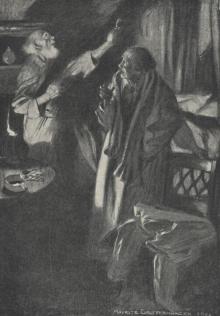 The Monkey's Paw
The Monkey's Paw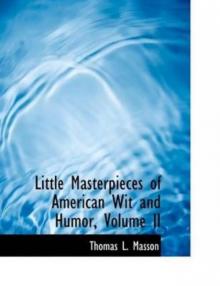 Little Masterpieces of American Wit and Humor, Volume II
Little Masterpieces of American Wit and Humor, Volume II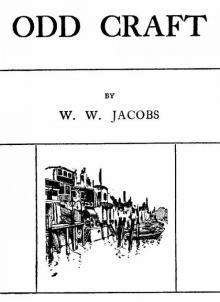 Odd Craft, Complete
Odd Craft, Complete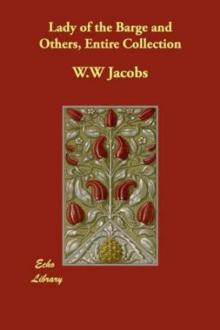 The Lady of the Barge and Others, Entire Collection
The Lady of the Barge and Others, Entire Collection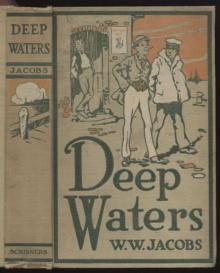 Deep Waters, the Entire Collection
Deep Waters, the Entire Collection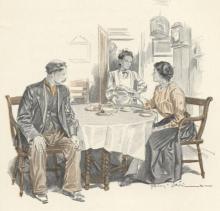 Three at Table
Three at Table Light Freights
Light Freights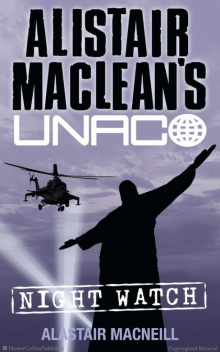 Night Watches
Night Watches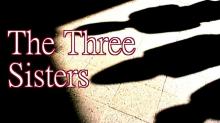 The Three Sisters
The Three Sisters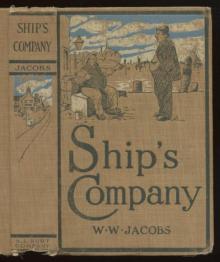 Ship's Company, the Entire Collection
Ship's Company, the Entire Collection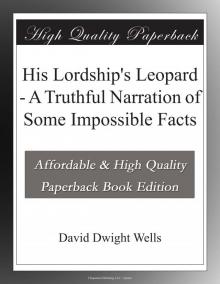 His Lordship's Leopard: A Truthful Narration of Some Impossible Facts
His Lordship's Leopard: A Truthful Narration of Some Impossible Facts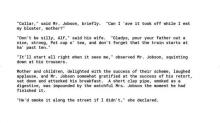 Fine Feathers
Fine Feathers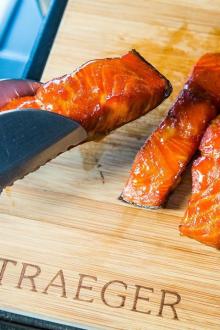 My Man Sandy
My Man Sandy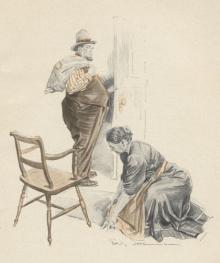 Self-Help
Self-Help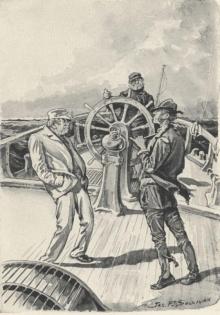 Captains All and Others
Captains All and Others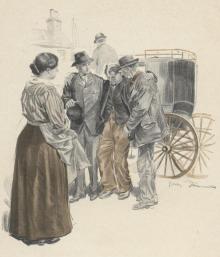 Back to Back
Back to Back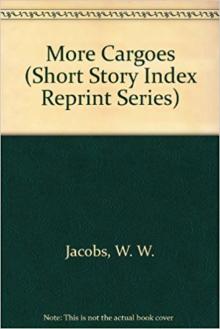 More Cargoes
More Cargoes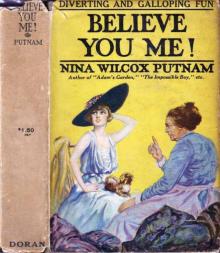 Believe You Me!
Believe You Me!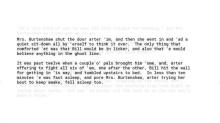 Keeping Up Appearances
Keeping Up Appearances The Statesmen Snowbound
The Statesmen Snowbound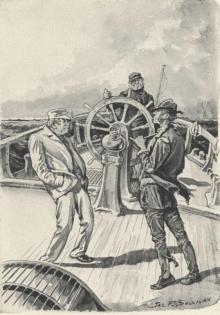 An Adulteration Act
An Adulteration Act The Old Soldier's Story: Poems and Prose Sketches
The Old Soldier's Story: Poems and Prose Sketches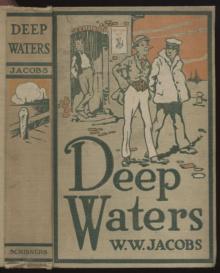 Husbandry
Husbandry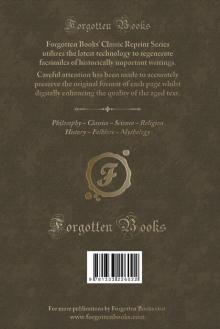 Love and the Ironmonger
Love and the Ironmonger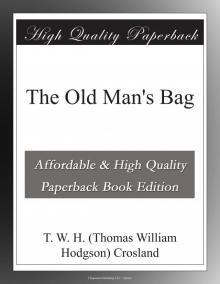 The Old Man's Bag
The Old Man's Bag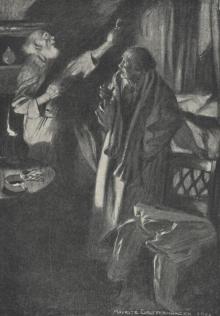 Dirty Work
Dirty Work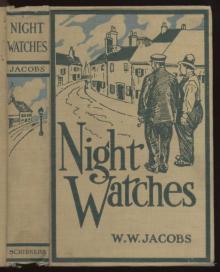 Easy Money
Easy Money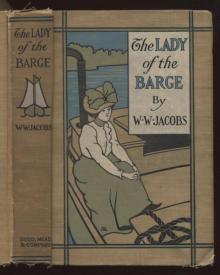 The Lady of the Barge
The Lady of the Barge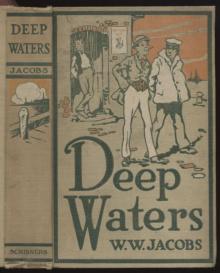 Bedridden and the Winter Offensive
Bedridden and the Winter Offensive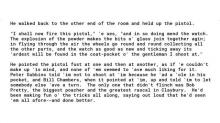 Odd Charges
Odd Charges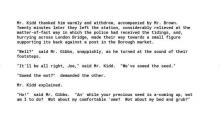 Friends in Need
Friends in Need Watch-Dogs
Watch-Dogs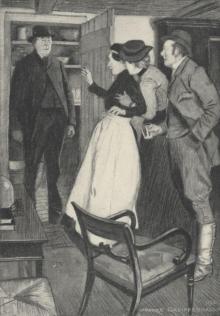 Cupboard Love
Cupboard Love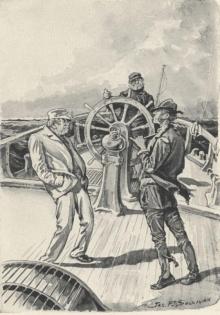 Captains All
Captains All A Spirit of Avarice
A Spirit of Avarice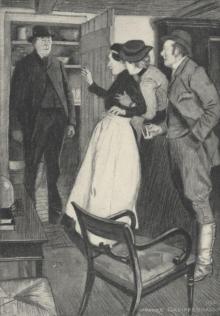 The Nest Egg
The Nest Egg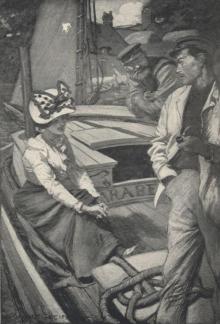 The Guardian Angel
The Guardian Angel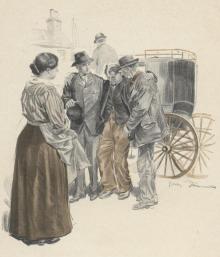 The Convert
The Convert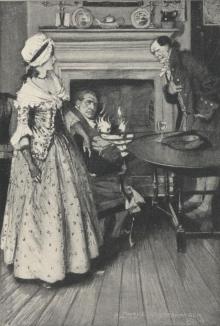 Captain Rogers
Captain Rogers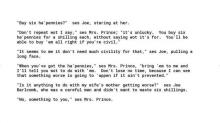 Breaking a Spell
Breaking a Spell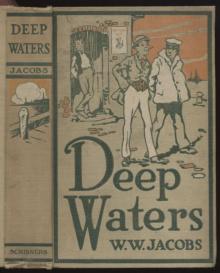 Striking Hard
Striking Hard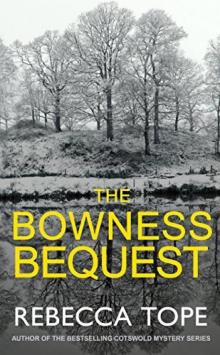 The Bequest
The Bequest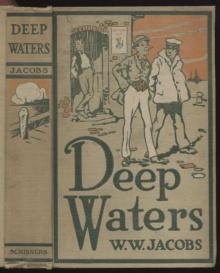 Shareholders
Shareholders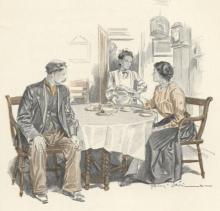 The Weaker Vessel
The Weaker Vessel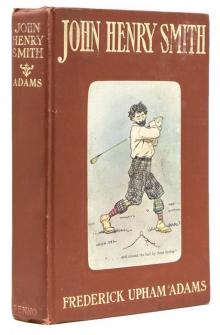 John Henry Smith
John Henry Smith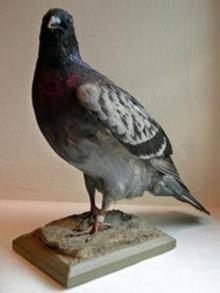 Four Pigeons
Four Pigeons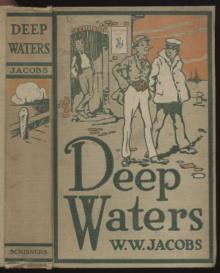 Made to Measure
Made to Measure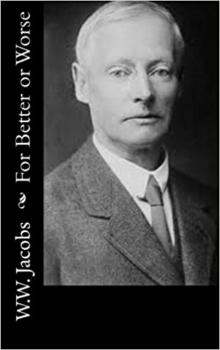 For Better or Worse
For Better or Worse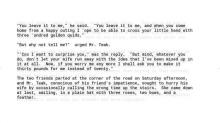 Fairy Gold
Fairy Gold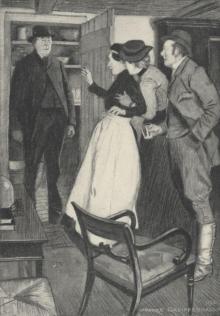 Family Cares
Family Cares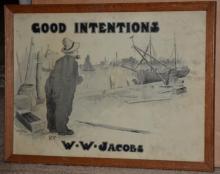 Good Intentions
Good Intentions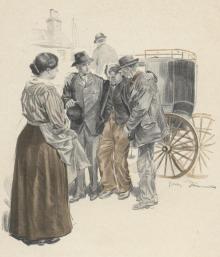 Prize Money
Prize Money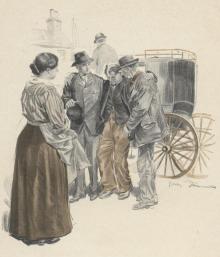 The Temptation of Samuel Burge
The Temptation of Samuel Burge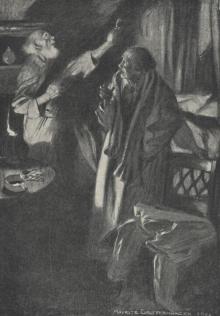 The Madness of Mr. Lister
The Madness of Mr. Lister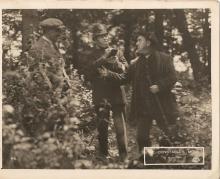 The Constable's Move
The Constable's Move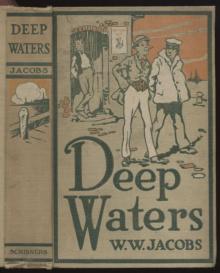 Paying Off
Paying Off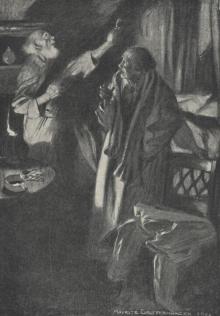 Double Dealing
Double Dealing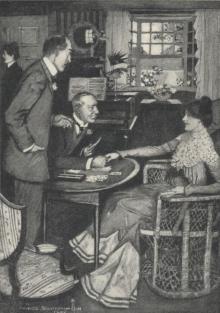 A Mixed Proposal
A Mixed Proposal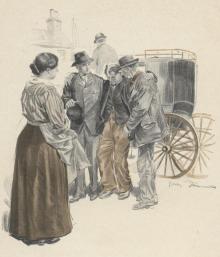 Bill's Paper Chase
Bill's Paper Chase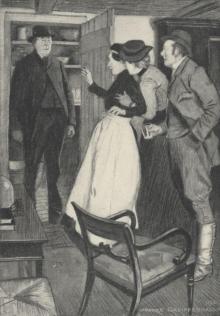 The Changing Numbers
The Changing Numbers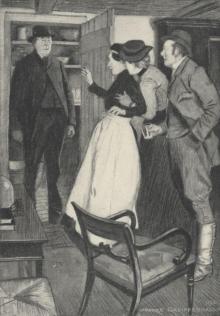 Over the Side
Over the Side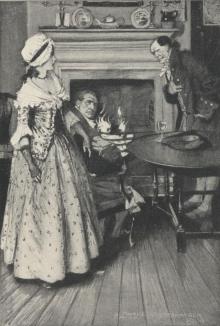 Lawyer Quince
Lawyer Quince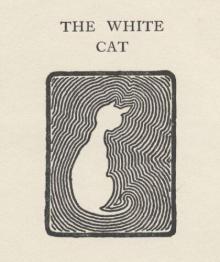 The White Cat
The White Cat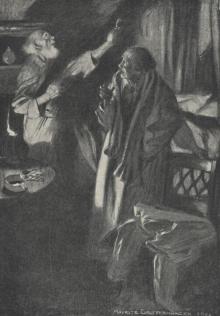 Admiral Peters
Admiral Peters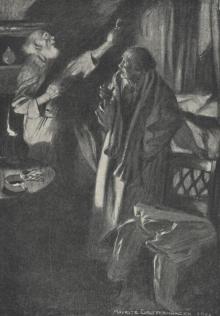 The Third String
The Third String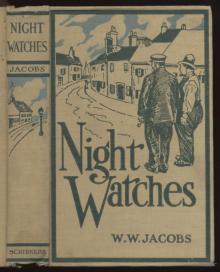 The Vigil
The Vigil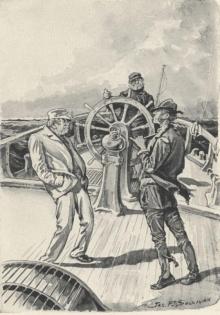 Bill's Lapse
Bill's Lapse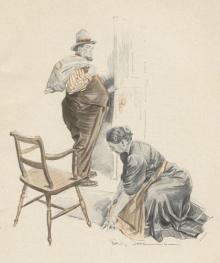 His Other Self
His Other Self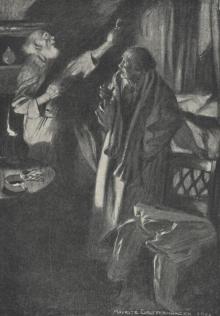 Matrimonial Openings
Matrimonial Openings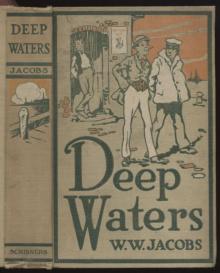 The Substitute
The Substitute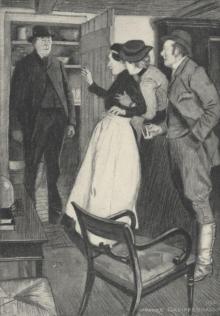 Deserted
Deserted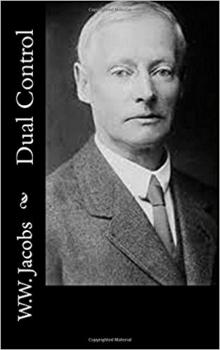 Dual Control
Dual Control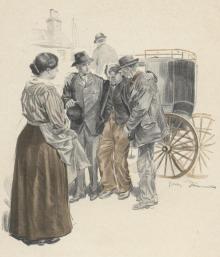 Homeward Bound
Homeward Bound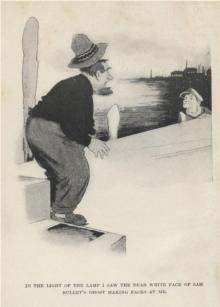 Sam's Ghost
Sam's Ghost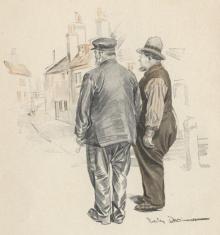 The Unknown
The Unknown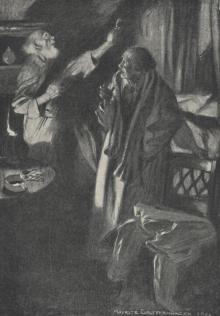 Stepping Backwards
Stepping Backwards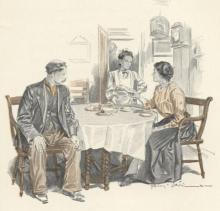 Sentence Deferred
Sentence Deferred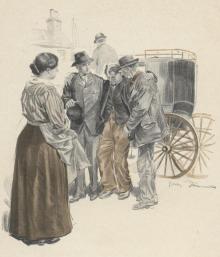 The Persecution of Bob Pretty
The Persecution of Bob Pretty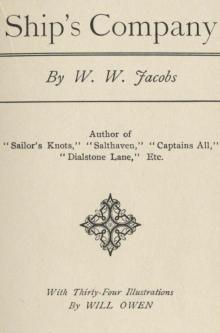 Skilled Assistance
Skilled Assistance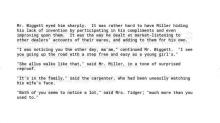 A Golden Venture
A Golden Venture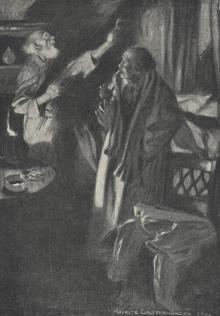 Establishing Relations
Establishing Relations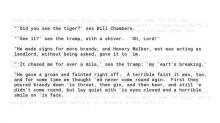 A Tiger's Skin
A Tiger's Skin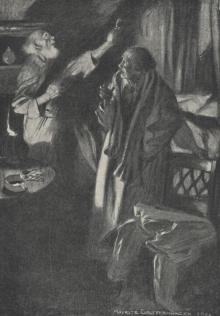 Bob's Redemption
Bob's Redemption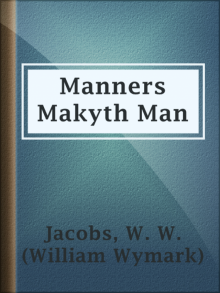 Manners Makyth Man
Manners Makyth Man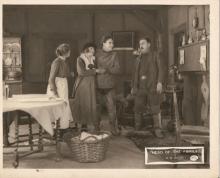 The Head of the Family
The Head of the Family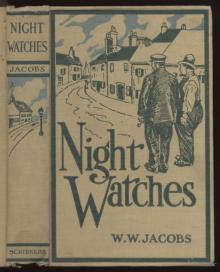 The Understudy
The Understudy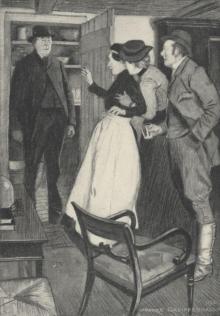 Odd Man Out
Odd Man Out Once Aboard the Lugger-- The History of George and his Mary
Once Aboard the Lugger-- The History of George and his Mary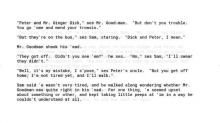 Peter's Pence
Peter's Pence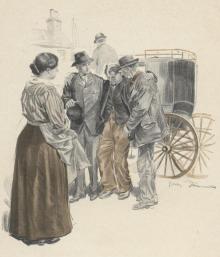 Blundell's Improvement
Blundell's Improvement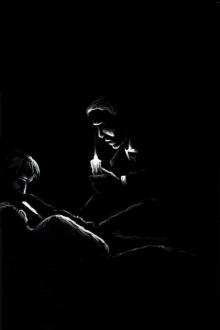 The Toll-House
The Toll-House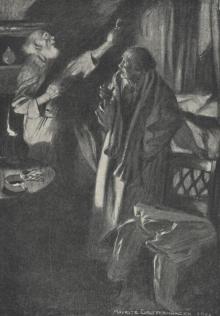 Dixon's Return
Dixon's Return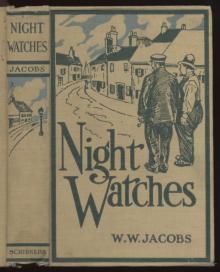 Keeping Watch
Keeping Watch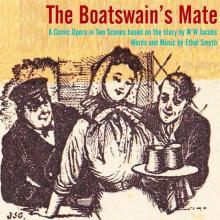 The Boatswain's Mate
The Boatswain's Mate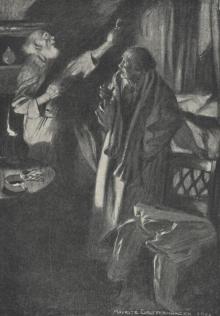 The Castaway
The Castaway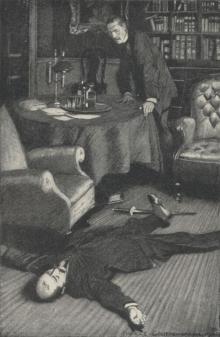 In the Library
In the Library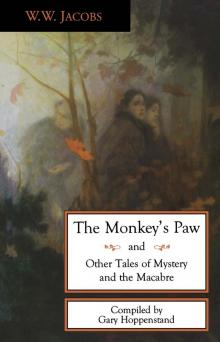 The Monkey's Paw and Other Tales Of Mystery and the Macabre
The Monkey's Paw and Other Tales Of Mystery and the Macabre